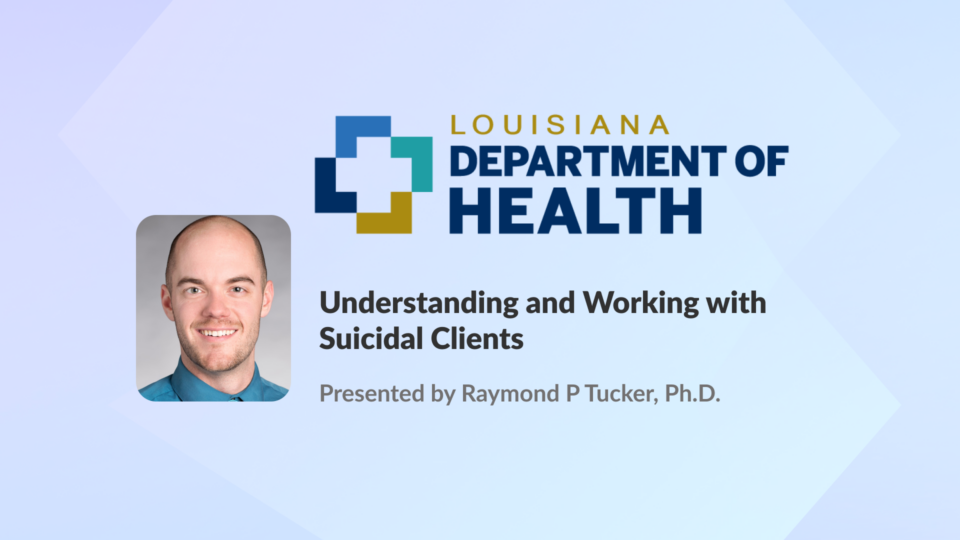
Understanding and Working with Suicidal Clients
Information
Date & Time
-
-
Learning Objectives
Participants will be able to:
-
Summarize how suicidal thoughts predict suicidal behavior and suicide death.
-
Describe the relationship between suicidal thinking and common symptoms of psychopathology, such as symptoms of major depressive disorder.
-
Identify at least 2 common brief interventions to manage suicide risk in clinical settings.
-
Identify and describe the common components of suicide safety plans.
-
Explain how to evaluate whether a suicide safety plan has been completed adherently.
Educational Goal
The educational goal of this workshop is to obtain increased understanding of what suicidal thoughts are, what they aren’t, and how to respond to them in clinical settings.
Description
This presentation will describe contemporary understanding of why people think about suicide and how thoughts of suicide can be effectively managed in healthcare settings.
Target Audience
- Counselor
- Marriage & Family Therapist
- Psychologist
- Social Worker
- Substance Use Disorder Professionals
Presenters

Raymond P. Tucker is a licensed clinical psychologist and associate professor of psychology at Louisiana State University. There he teaches undergraduate courses in psychology, graduate courses in clinical psychology, and founded the LSU Mitigation of Suicidal Behavior research laboratory. As a clinical assistant professor of psychology at LSUHSC/OLOL, he trains medical staff/students in suicide-specific evidence-based assessment and intervention protocols.
Raymond completed his B.A. in psychology from Lawrence University in Appleton Wisconsin in 2010. He completed his M.S. (2012) and Ph.D. (2017) in clinical psychology at Oklahoma State University. He completed his doctoral clinical internship at VA Puget Sound in Seattle, WA.
Financially Sponsored By
- Louisiana Department of Health - Office of Behavioral Health